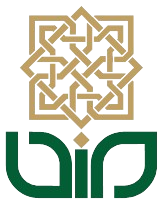Global economic growth continues to decelerate, largely due to the ongoing trade tensions between the US and China. This has had a significant impact on Indonesia’s economic conditions, with the country experiencing a 5.05 percent growth in the second quarter of 2019. The current account deficit is anticipated to improve, driven by reduced import demand in line with the ongoing fragile domestic economic adjustment. Additionally, foreign exchange reserves have shown an increase, reaching $126.4 billion in August 2019, up from $125.9 billion in July 2019. Other positive conditions include a strengthened rupiah, controlled inflation, sustained financial stability, resilient banking capital and liquidity, and improved financial market performance.
This information was shared by Rifki Ismail MA., Ph.D., during a presentation at the General Lecture of the Faculty of Islamic Economics and Business (FEBI) UIN Sunan Kalijaga. The event was held on Tuesday (15/10) at the Prof. Amin Abdullah Multipurpose Building, UIN Sunan Kalijaga. The Dean of FEBI, Dr. H. Syafiq Mahmadah Hanafi, M.Ag., Vice Deans, Heads of Study Programs, and Faculty Members and Students of FEBI UIN Sunan Kalijaga were in attendance. The selected theme for the occasion was “Macroeconomic Outlook on Islamic Economics, Monetary, Banking, and Payment System in Indonesia.”
Rifki further elaborated that Islamic economics has emerged as a new driver of global economic expansion, with participating countries including Malaysia, the UK, Saudi Arabia, the UAE, as well as Brazil, Australia, Japan, Korea, Thailand, and China. In general, Indonesia ranks 10th as a major player in the global Islamic economy. Nevertheless, Indonesia stands as the largest market for the expansion of the halal industry, necessitating a comprehensive strategy to harness the potential of Indonesia’s Islamic economy and finance as a new source of national economic growth.
“The development of the Sharia economy during the second quarter of 2019 is marked by a 4.99% (yoy) growth in Sharia business activities. This growth is mainly driven by the agricultural sector, which has once again made a high contribution (0.78%) to the overall annual growth of Sharia business activities,” said Suhaedi.
To nurture the Sharia economy, Bank Indonesia has initiated the 2019 Eksyar Program, which encompasses the reinforcement of the Sharia economy through the establishment of the Halal Value Chain ecosystem, knowledge development, EkSyar campaign programs, the advancement of the Sharia financial market for infrastructure financing, collaboration with international forums, and socially oriented development. Furthermore, a special committee for the Sharia economy, the National Committee for Sharia Finance (KNKS), has been established, with the aim of fostering greater integration in the development of the Sharia economy and finance in Indonesia.
